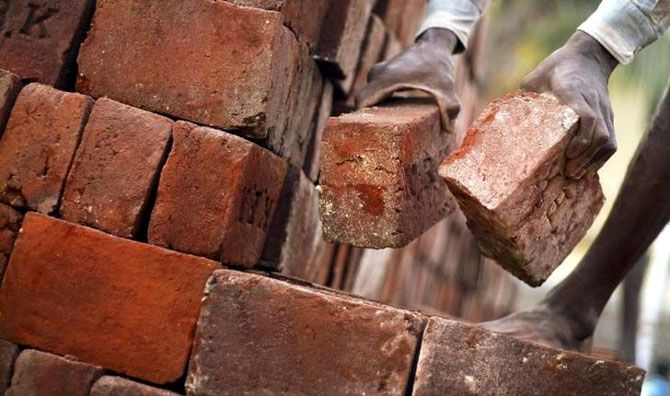 Under the new law, builders will have to register all projects with the authorities and disclose all details. And they can start construction only after they have got all the approvals.
Under the new law, builders will have to register all projects with the authorities and disclose all details. And they can start construction only after they have got all the approvals.
The Real Estate Bill, which Parliament passed into law on Tuesday, contains several provisions which aim to protect homebuyers from unscrupulous builders.
At the moment, there is great opacity in the sector.
Buyers suffer because they often don’t know the relevant details of the project, including the state of various government approvals and the legal status of the land.
Under the new law, builders will have to register all projects with the authorities and disclose all details.
And they can start construction only after they have got all the approvals.
Builders will have to deposit 70 per cent of the money received from buyers in an escrow account which can be used only for the project for which money has been raised. In the past, builders have used money raised from buyers to buy land for new projects.
As the market turned sluggish, and cash flows got constrained, this led to a lot of projects getting stuck, which put the buyers in a spot. The new rule should end this malpractice.
Moreover, builders will need the concurrence of at least two-thirds of the homebuyers before altering a project. This safeguard has been introduced after it came to light that builders had added extra floors without taking the buyers into confidence.
In two cases, the courts disallowed such constructions after the residents complained.
Not only is such construction unfair to the original buyers, who are forced to share the infrastructure with more people than initially promised, but it also poses a safety risk.
There are other buyer-friendly features in the new law. Misleading advertisements are punishable with a fine and even imprisonment, and buyers will be charged only for the carpet area and not the common areas which are often included under the guise of 'super area'.
Moreover, the new law covers residential as well as commercial real estate.
Though the perception is that the residential market is where the rot lies, the commercial market is no less in need of a clean-up.
Even in the commercial market, one big reason for corruption in the sector is the maze of laws in every state.
Builders often need to pay speed money to negotiate these laws and get the clearances. In any market, this means that construction can start at least two years after the land has been acquired.
This adds to the builder’s cost, which he then tries to recover from his unsuspecting buyers. While the new law will help deal with errant builders, there is also the need to simplify these rules if the Augean stables need to be cleaned.
Accountability is needed for bureaucrats as well as builders to fix the sector.
Importantly, the passage of this Bill marks one of those rare occasions when the Treasury and Opposition benches have buried their differences for the sake of legislative reform.
In the version drafted by the Manmohan Singh-led government, the Bill had suggested that the money deposited in the escrow account should be 70 per cent.
Given the high price of real estate, the Narendra Modi government had said 50 per cent should be enough.
In a model case of co-operation, the government has, at the Opposition’s request, returned the bar to 70 per cent.
It is to be hoped that more examples of such forward-thinking bipartisanship will be on display in the ongoing session of Parliament.
The image is used for representational purpose only. Photograph: Reuters












 © 2025
© 2025